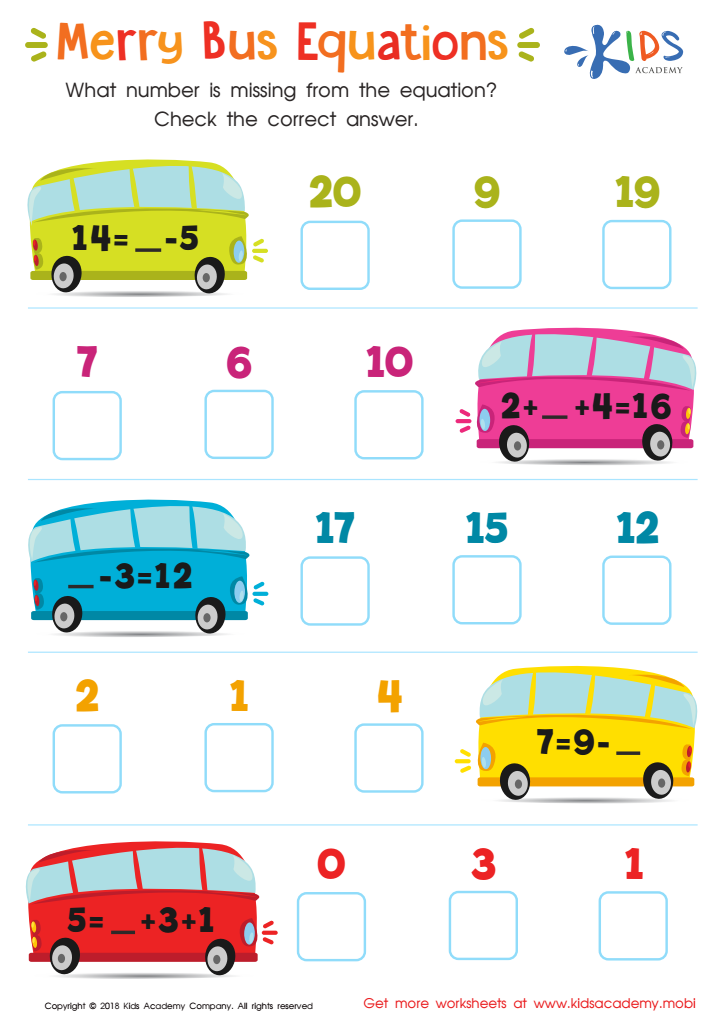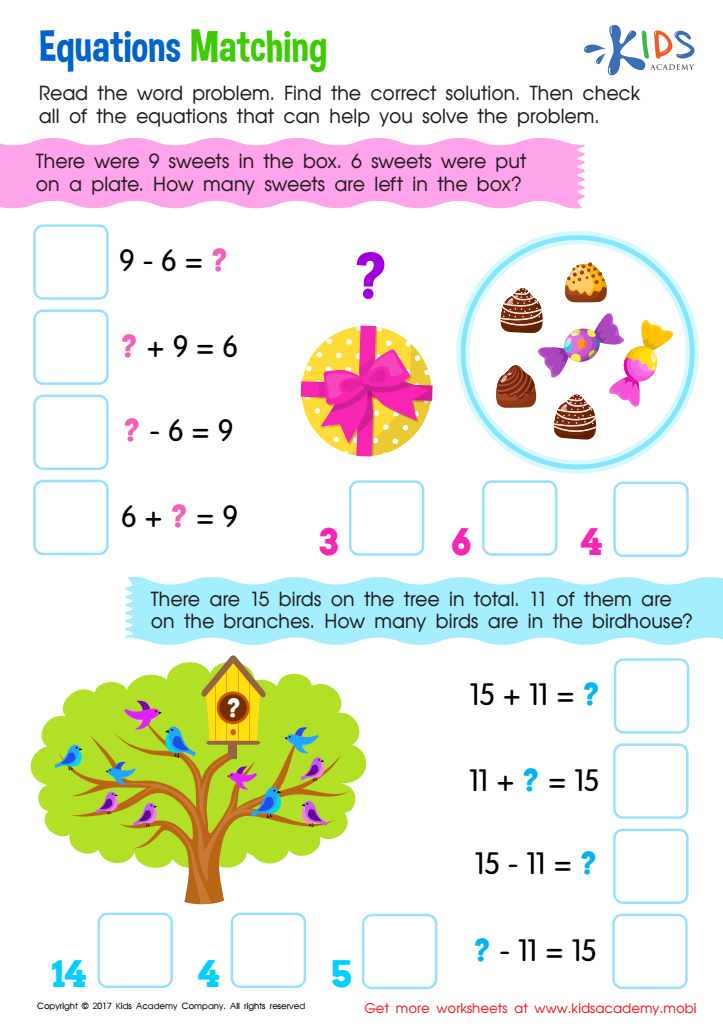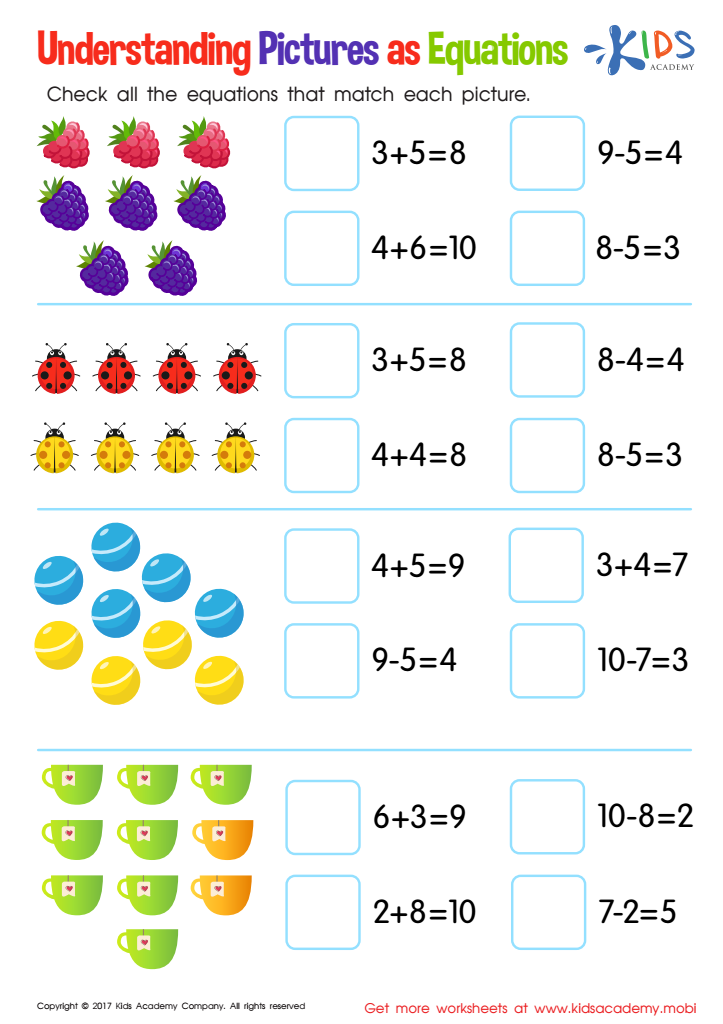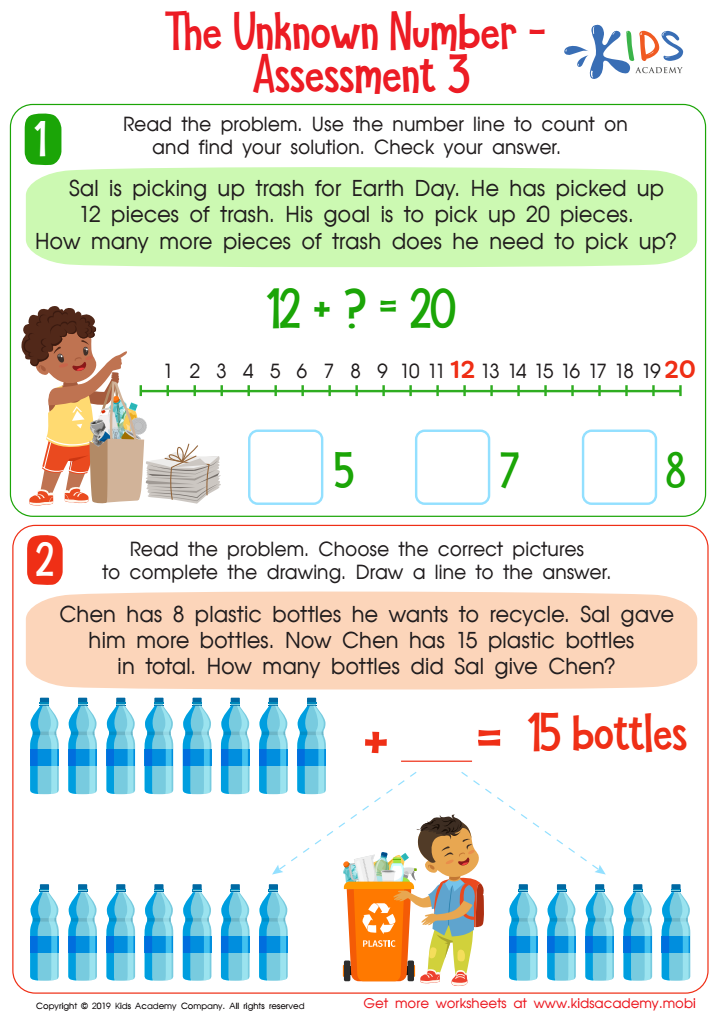Understanding equations Math Worksheets for Ages 5-6
4 filtered results
-
From - To
Introduce your young learners to the world of math with our "Understanding Equations Math Worksheets for Ages 5-6". These engaging worksheets are designed to help 5-6 year-olds grasp basic algebraic concepts through fun and interactive exercises. Each worksheet simplifies equations with easy-to-follow visuals, encouraging kids to apply logical thinking and problem-solving skills. With themes ranging from everyday scenarios to imaginative stories, our worksheets make learning math both enjoyable and educational. Perfect for classroom or at-home practice, these resources set a strong foundation for future math success while fostering a love for learning. Start their math journey today!


Merry Bus Equations Worksheet


Equations Matching Word Problems Worksheet


Understanding Pictures as Equations Worksheet


The Unknown Number - Assessment 3 Worksheet
Understanding basic math equations at an early age, around 5-6 years, is foundational for children's cognitive and academic development. First and foremost, early familiarity with math concepts fosters critical thinking and problem-solving skills. When young children grasp the logic behind simple equations like 1 + 1 = 2, they begin to perceive patterns and relationships in their environment, enhancing their overall cognitive abilities.
Additionally, early math skills are strongly linked to future academic success. Research shows that children who develop math competencies early on tend to perform better in later grades, not just in mathematics but across various subjects. Mastery of basic equations lays the groundwork for more complex mathematical understanding, like algebra, geometry, and data analysis, which are essential in many aspects of everyday life and future careers.
Moreover, engaging with math at a young age can help break down fear and anxiety associated with the subject. By making math enjoyable through games, hands-on activities, and real-life applications, parents and teachers can cultivate a positive attitude towards numbers and equations. This early encouragement builds confidence and reduces the likelihood of math-related anxiety in later years.
In summary, fostering an understanding of simple math equations at ages 5-6 paves the way for critical cognitive development, academic success, and a lifelong positive relationship with math.
 Assign to My Students
Assign to My Students





















